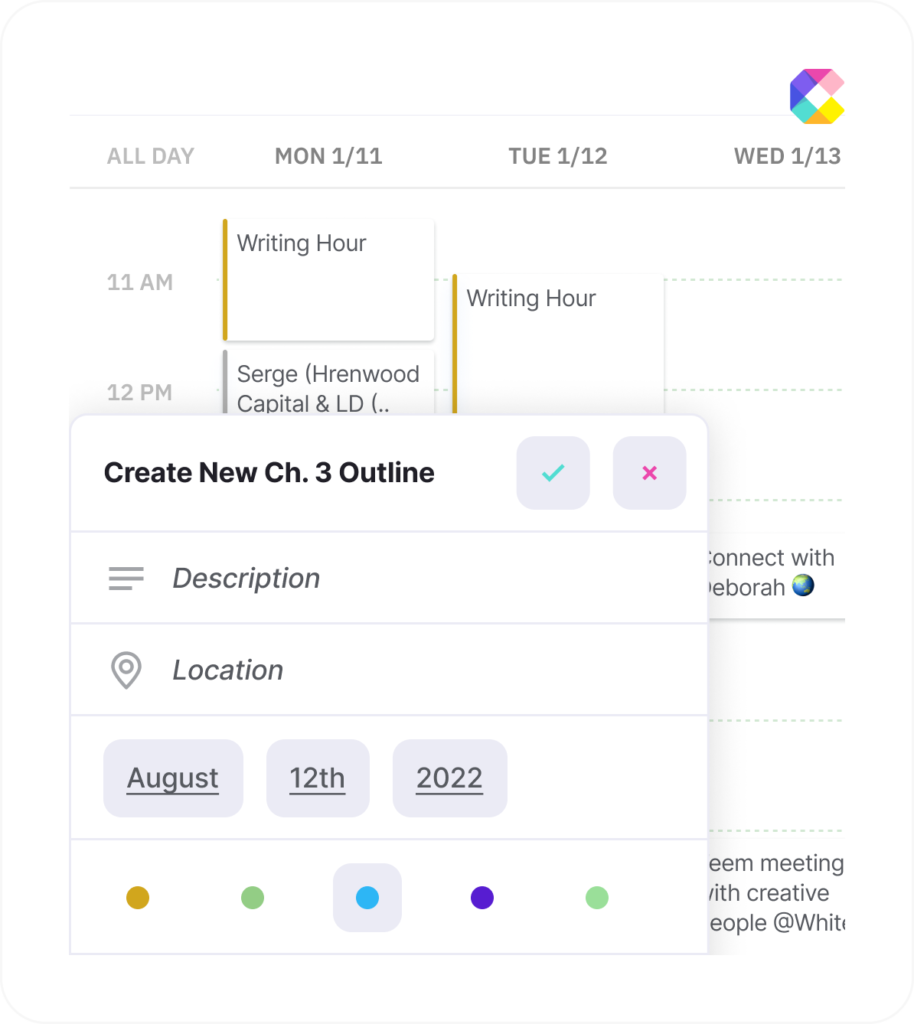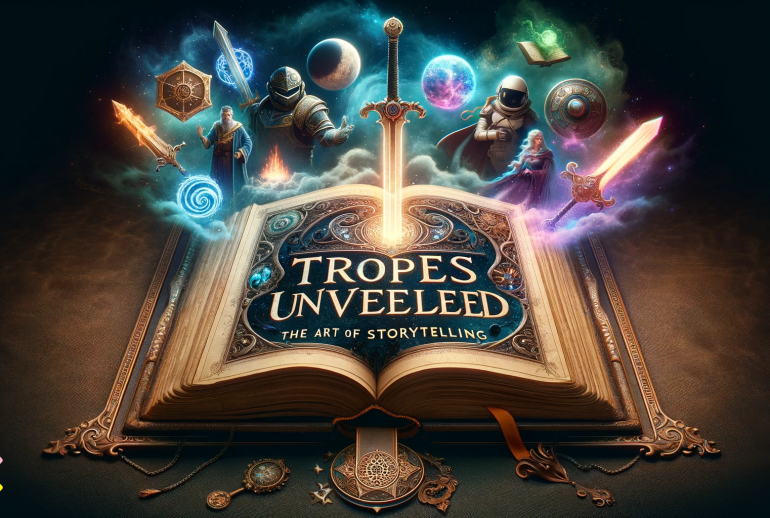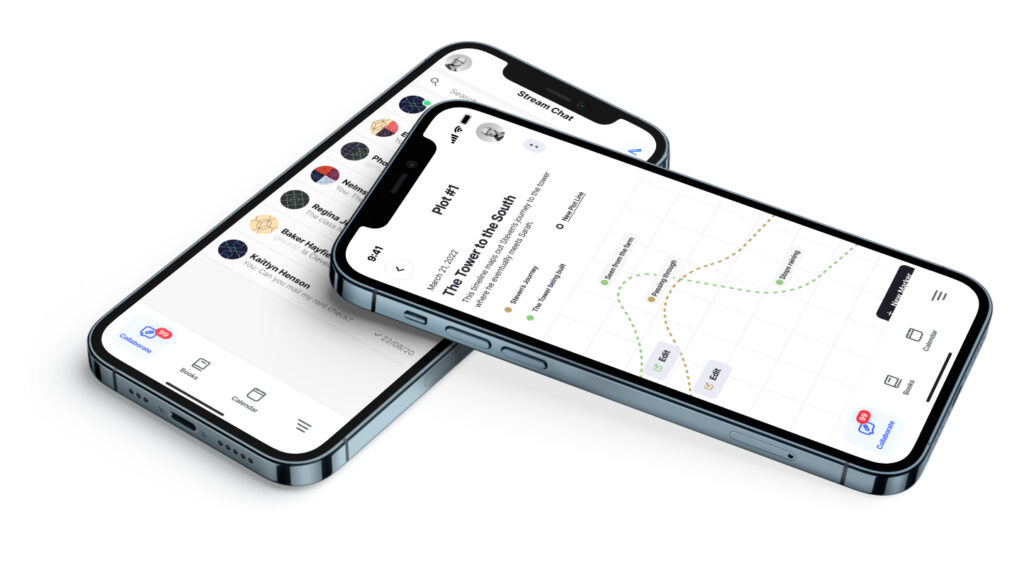Tropes are a hot topic that leaves many writers scratching their heads and asking, “Should I? Shouldn’t I?”
It’s true, you can’t cruise the top 100 of most categories without seeing tropes in titles or descriptions of the books readers buy most. In romance, you’ll see friends to lovers, bully romances, and even sweet western romances.
So what are tropes, exactly?
Tropes are the tried and true, tested story devices that keep readers coming back. While many people think tropes are a bad thing, or mean work is unoriginal, or that they should be avoided at all costs, this is simply not true.
Yes, tropes can be overused. They can be tired, unimaginative, or even poorly done.
But when a trope is done well, readers lose their minds and fall in love with the story.
Tropes elevate writing. They make sure readers know what they’re going to get and allow readers to zero in on the types of stories they love to read. Or, on the flip side, avoid the kinds of books they don’t enjoy. So knowing your tropes can inadvertently save you from potential bad reviews and troubles moving forward!
Examples of tropes with meanings.
I get it; tropes aren’t always easy to spot. So here are some examples that might help you learn to spot them in the wild.
The Love Triangle: yep, you guessed it. Boy meets girl, falls in love, tries to win her. But there’s competition to be had; she’s already dating someone, is married, or has no idea her best friend is in love with her. Chaos ensues! Who will win her heart?
The One: You know this story trope, for sure. You know that average character who suddenly learns they’re the only one who can save the world? Or perhaps they’re just a poor boy from a poor family who learns they’re actually from royal blood and the next to take the throne? Or the everyday girl who suddenly realizes she has magical powers even though she’s been normal every step of the way…
The Ugly Duckling: this one used to refer to women who ‘clean up well’ going from being perceived as ugly to being beautiful through the course of their story. Some stories try to turn this trope on its head by having the man go from ugly to attractive, but that doesn’t seem as popular among readers.
The Hero Saves the World: this is a tried-and-true trope. The hero literally saves the world. That’s it. It’s that simple.
Falling for the plain girl: She’s quiet, she’s shy, she’s not pretty or ugly, but somewhere in between. And the hero falls for her. Sometimes, she’s done something to get his attention. Most of the time, she simply exists and he just loves her as she is. This trope can be done well! But when it’s bad, it’s bad. So make sure you handle this one with care!
How do I know what tropes to use?
Well, first, you should read widely in your genre and get familiar with the tropes commonly used in the kind of books you write.
If you’re looking for a list, then google is your friend! Some tropes are genre-specific, so make sure you pick something compatible with your story. And, as easy as this is for me to say, I know it’s tough to do; try to put a fresh spin on the tropes you choose. Make them unique, make them yours, and make sure they strengthen and add depth to your story, rather than just work as a device to pull readers in without any substance.
Should I use tropes?
Odds are, you already do.
I hate to say it, but everything has been done before. Everything. Finding a fresh way to tell an old story is an important skill for writers. Tropes are helpful because, again, many readers know what they like and actively seek out books that fit those parameters.
For example, I know someone who loves sci-fi novels where AI robots become intelligent and try to take over the world. He consumes these books like a dying man in the desert consumes water, not slow and steady like he should, but voraciously as if nothing else matters. He knows what he likes, and when authors make his job searching for what he likes easier by showing the tropes in the description or title, he’s grateful. No more hunting to make sure the book fits all his needs and wants and more time spent with quality books he loves.
I imagine, if you stop and think about it, you have a favorite genre and favorite things to see within that genre. Knowing what tropes you love makes book hunting far easier, and knowing the tropes in a book at a glance helps you decide if that’s the book for you… or one you want to give a pass.
So yes, I think authors should utilize every single tool at their disposal, and tropes are just that—a tool to help you get where you want to go and make money at this authoring career or hobby you’ve put so much effort into.
How many tropes should I use?
It’s a safe bet to use between one and three per novel. Obviously, this isn’t a rule, but a guideline. Some of my more successful author associates blend tropes and twist them in fun ways and can get away with overloading a book with more than three, even.
For example, if you’re writing a fantasy, you could choose to use the Dark Villain trope (where the big bad guy who’s all evil tries to rule the world), the damsel in distress or the femme fatale (either a woman who needs saving or the one who’s just as or possibly more impressive than her male counterparts), and a magical item that no one knows the use for but will ultimately hold some key to saving the day. This story practically writes itself! But simply by weaving together three tropes, we can see the bones of a story peeking through.
Even more exciting, we see an idea we can market, we can analyze the demographic of, and that we can research to write the kind of book this reader loves to read. Using tropes in this way will strengthen your writing, help you find your readers, and make marketing a breeze.
And marketing is often the hardest part of being an author!
Fine. I guess I’ll try tropes.
I’d recommend approaching this the same way I recommend approaching everything in writing; with excitement. Readers will feel if you’re not putting your heart into things. And, if you’re convinced from the outset that this plan will fail you, then you’re right—you’ll fail.
By seeing this new aspect of writing as a challenge to be overcome, you’ll have a much better outlook and enable yourself to write a fantastic story. And again, don’t be afraid to make your own unique spin on the tropes; they’re not set in stone, after all.
This is a new opportunity for you to level up your writing skill, so kick some behind and show the world what you’ve got!
So I should just stuff in a bunch of tropes and call it good?
Again, tropes are great. What’s not great is just doing the same thing everyone else has done. Try to find fresh, unique concepts that are not overdone. For example, if you’re writing a romance with a love triangle but your female main character has the personality of a wilted cabbage leaf, then readers are going to struggle to figure out why anyone wants her, let alone two people. And that’s not going to translate well, because it makes their intentions look suspect, and thus makes them look like they might be in it for the wrong reasons.
Now, when the heroine is feisty, intelligent, and quick to cast spells, but is suddenly struck mute and someone has to step up and help her to keep her safe, then we’re getting somewhere. And if one is her brother’s best friend who feels he can’t like her because she’s off-limits and the other is someone she’s had a crush on for forever, but thought he wasn’t interested, then that idea gets spicy. By starting with a trope and layering on situations and backstory, we can create something exciting and unexpected that readers will love. It helps to have read widely within the genre you write so you can identify tropes and how they’re handled, as well as think on how you’d do things differently or make an idea fit your styles, perspectives, and characters.
To be clear, I’m not recommending using someone’s idea as your own, I’m merely saying that by disassembling a trope to its base parts, you can rebuild it in a way that’s unique to your books, voice, and style.

Goals Calendar
The goals calendar will help keep you on track and ensure deadlines are met. It will keep you accountable to your goals and help ensure timely story completion.



